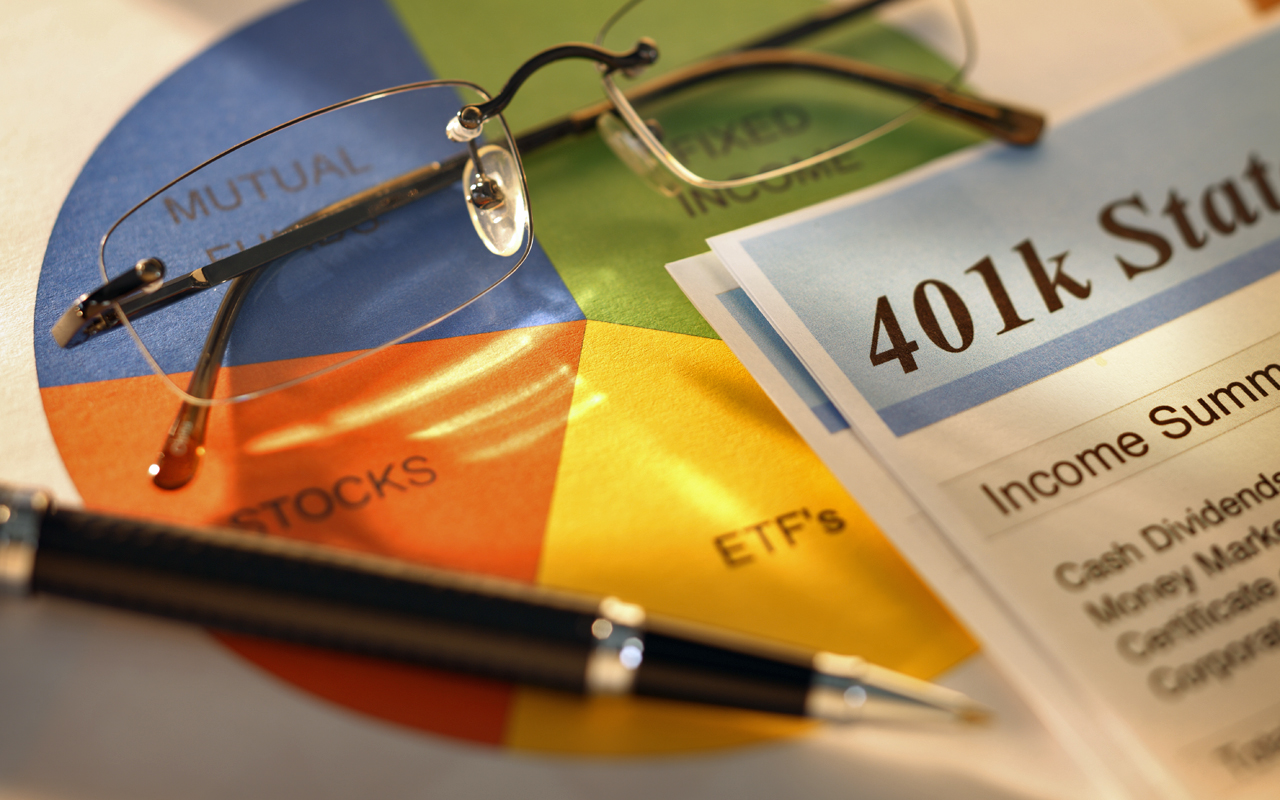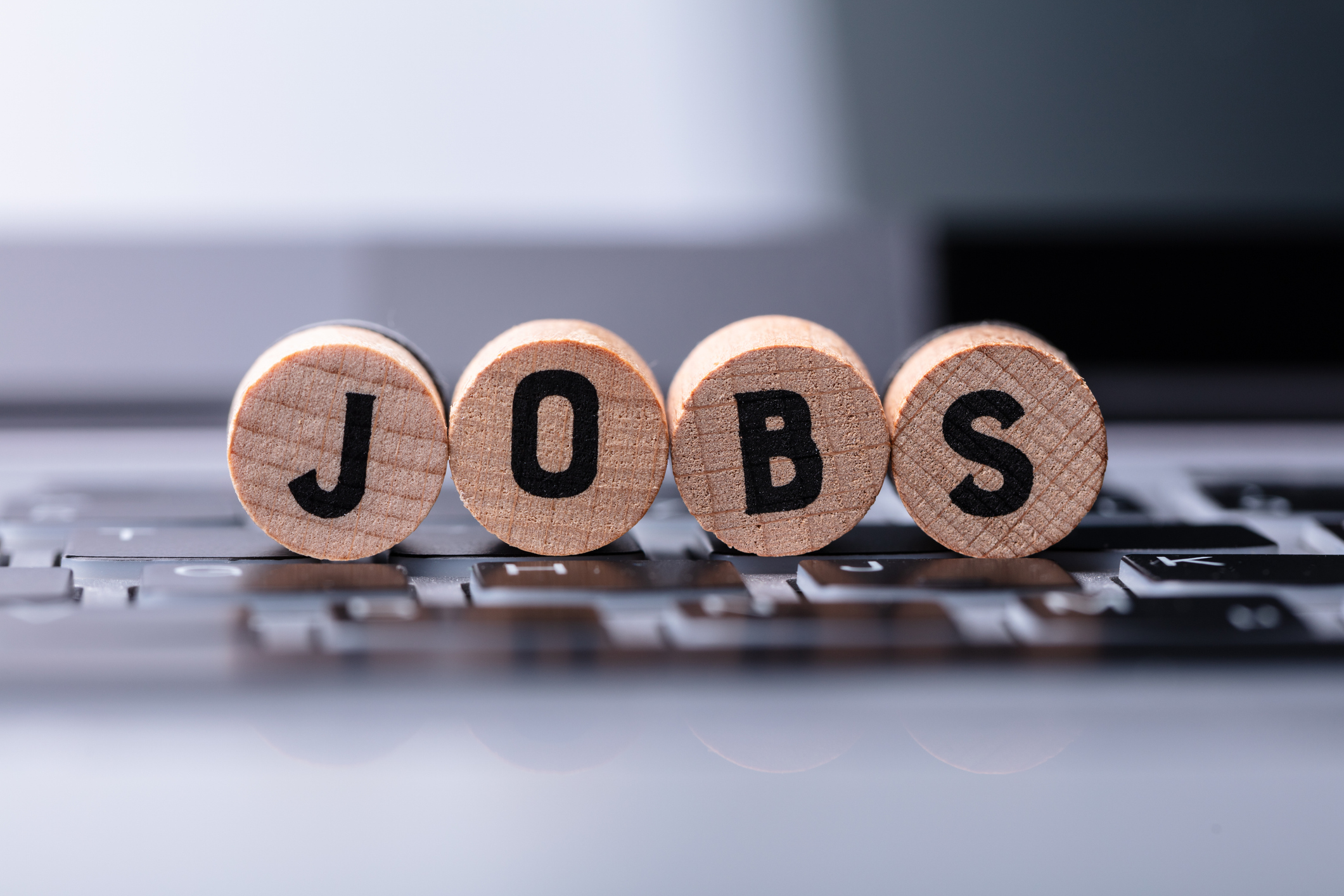The 5 Best Investments You Can Make in 2018
The strangest of years will be drawing to a close in just a few weeks.


Profit and prosper with the best of Kiplinger's advice on investing, taxes, retirement, personal finance and much more. Delivered daily. Enter your email in the box and click Sign Me Up.
You are now subscribed
Your newsletter sign-up was successful
Want to add more newsletters?

Delivered daily
Kiplinger Today
Profit and prosper with the best of Kiplinger's advice on investing, taxes, retirement, personal finance and much more delivered daily. Smart money moves start here.

Sent five days a week
Kiplinger A Step Ahead
Get practical help to make better financial decisions in your everyday life, from spending to savings on top deals.

Delivered daily
Kiplinger Closing Bell
Get today's biggest financial and investing headlines delivered to your inbox every day the U.S. stock market is open.

Sent twice a week
Kiplinger Adviser Intel
Financial pros across the country share best practices and fresh tactics to preserve and grow your wealth.

Delivered weekly
Kiplinger Tax Tips
Trim your federal and state tax bills with practical tax-planning and tax-cutting strategies.

Sent twice a week
Kiplinger Retirement Tips
Your twice-a-week guide to planning and enjoying a financially secure and richly rewarding retirement

Sent bimonthly.
Kiplinger Adviser Angle
Insights for advisers, wealth managers and other financial professionals.

Sent twice a week
Kiplinger Investing Weekly
Your twice-a-week roundup of promising stocks, funds, companies and industries you should consider, ones you should avoid, and why.

Sent weekly for six weeks
Kiplinger Invest for Retirement
Your step-by-step six-part series on how to invest for retirement, from devising a successful strategy to exactly which investments to choose.
The strangest of years will be drawing to a close in just a few weeks. It’s already time to start mapping out your financial plans for 2018. So, what should we expect in the new year? And importantly, what are the best investments you can make heading into it?
Let’s start with what we know, or at least with what we think we know.
The Federal Reserve is planning on raising interest rates three or four times next year. Take any forecasts with a grain of salt, but it’s safe to say there will be at least a little monetary tightening and that short-term rates will go a little higher. This by no means guarantees market turbulence, but it does create headwinds for further gains. Just remember: The Fed is raising rates because the economy is strong and getting stronger. Unemployment is near multi-decade lows, and even long-dormant European and emerging-market economies are showing signs of life. We’ll be starting the new year with very strong economic momentum.
We also know the stock market will start 2018 in expensive territory. The S&P 500 currently sports a Shiller price-to-earnings ratio of 32, nearly double the long-term average. Expensive markets regularly get more expensive, but at this stage in the cycle, you must be more careful about where you invest.
Lastly, investors have gotten used to ignoring political and macro risk, from bombastic comments from President Donald Trump to the threat of war with North Korea. But that complacency may or may not last. Suffice it to say, 2018 should be interesting.
Today, I’m going to recommend five of the best investments you should make in 2018. This is not another hot list of stocks, but instead a full strategy for the year ahead. However, some of these require significant planning, so you’ll want to take the first steps today.
Data is as of Dec. 6, 2017. Click on ticker-symbol links in each slide for current share prices and more.

Invest (As Much as You Can) in Your 401(k) Plan
The general consensus out there is that tax shelters are the domain of the uber-rich. But while wealth does have its perks, the truth is that history’s greatest tax shelter is readily available to regular, everyday investors.
I’m talking about the humble 401(k).
I know, I know. The average 401(k) plan is a collection of mediocre mutual funds loaded with high fees. Be that as it may, it's still a shockingly good place to staff your savings.
Let’s assume you’re in the 25% tax bracket. For every dollar you invest in your 401(k), that’s an extra 25% of your investment that’s allowed to compound, which can be a powerful thing when you’re talking about decades of tax-free treatment. And if your employer matches your contribution, you’re essentially earning an extra 100% on those funds.
The IRS is raising the annual contribution limits on 401(k) plans to $18,500, which does not include employer matching. And if you are 50 or older, you can contribute an additional $6,000 per year, for a total of $24,500.
Do yourself a favor: Try to max out your 401(k) plan in 2018. If you’re nervous about the market, no problem – you can invest your account balance in a money market or stable value fund. You’ll still benefit from the tax break and any employer matching. It likely will be the best decision you make all year.

Invest in Alternatives
The stock market is the biggest wealth creation machine in human history, and that’s not hyperbole. Stocks give you a little piece of the U.S. economy. So if you’re bullish on America’s long-term future, you’re bullish on the stock market.
But while the stock market might be the best place to park your money over an investing lifetime, it’s not necessarily the best home for it at all times. Consider that from 1968 to 1981, the Dow Jones Industrial Average was flat, not earning a single red cent. In inflation-adjusted terms, they actually lost money. But commodities and gold performed fantastically in those years. From 1971 to 1980, the price of an ounce of gold exploded by more than 2,000%.
The lesson here is not necessarily to buy gold but rather to diversify. Have some portion of your wealth in alternatives that aren’t tightly correlated to the market. That can include anything from precious metals and artwork to rental real estate and even actively managed strategies that zig when the market zags.
“The inclusion of an alternative investment in a portfolio is a form of insurance,” says Endre Dobozy, manager of FTM Limited, a firm specializing in low-volatility alternative investments. “As the global financial crisis illustrated, equites remain diversified until they aren’t. By including an alternate investment in your portfolio that has little to no correlation to the market, you are able to offset a portion of any market losses and reduce the overall drawdown of your portfolio.”
The alternatives space is less regulated than traditional asset classes such as stocks and bonds, so you must do a little extra due diligence here. And never invest in something you don’t understand. But adding alternatives to your portfolio, if done right, can be that magic elixir of higher returns with less risk.

Invest in Your Career
When I was a kid fresh out of college, my mother’s financial advisor, Daniel, gave me some remarkably good life advice that I was too young and immature to take. He told me that the markets were a fine place to park your excess savings, but that the biggest investment I should make was in my own career. Go to work, better yourself and dedicate your energy to your job, because that is what actually pays your bills.
This was the late 1990s, so that was the last thing I wanted to hear. Everyone was getting rich quick trading tech stocks, and I was convinced I would be a retired millionaire by the age of 25. The 2000-02 bear market taught me a little humility, however, and I realized that if I wanted to make a decent living, I’d have to roll up my sleeves and go to work.
I’m glad I experienced a good bear market when I did because it forced me to do a better job of prioritizing. I became more focused, and 20 years later, I’m in a much better place in life because of those changes I made then.
So again, invest your savings in stocks, Bitcoin or whatever else strikes your fancy. But invest your time and energy in your career. And this doesn’t mean accepting life as a corporate automaton. With the skills, experience and contacts you reap from your job, you can build the foundations to start your own business and better control your financial destiny.
But it all starts with going to work in the morning.

Invest in Self-Awareness and Prudence
When I was 10 years old, I believed myself to be an “expert” on baseball cards. I had my library of Beckett Baseball Card Monthly magazines and plenty of sweat equity from haggling and trading with my friends. And I invested my entire modest life savings in baseball cards believing fully that I would one day be a wealthy man.
It didn’t quite work out that way. In the late 1980s and early 1990s, baseball cards were a bubble, but it wasn’t just freckle-faced boys like me bidding up prices. Grown men who should have known better would spend thousands of dollars on mass-produced cardboard pictures of other men in baseball uniforms. Eventually, this ridiculous bubble burst. By the time the dust settled, most of the cards weren’t worth the paper they were printed on.
As I write this, Bitcoin just exploded past $14,000. As recently as last year, you still could buy it for less than $400.
Who am I to argue with that kind of growth? The bull market in Bitcoin and other crypto currencies seems to be creating new millionaires every day. If you happen to be one of those millionaires, congratulations on making a monster trade. But if you’re on the outside looking in, be cautious. Bitcoin is starting to show all the classic signs of a bubble. And as I discovered as a child, faddish investments like these are notoriously hard to accurately value.
According to Rodney Johnson, co-founder of economic forecasting firm Dent Research: “If a company or commodity has no assets, no returns and no backing, what’s it worth? In a word, ‘priceless.’ Some will see zero value, others infinite value.”
If you still want to dabble in Bitcoin, go for it, but don’t invest more than you can afford to lose. “I wouldn’t risk any significant portion of my wealth on such a thing,” Johnson says. “But I might put a few dollars in, like buying an investment lottery ticket.”
Sometimes collectibles do fantastically well. But when they do, it usually is because the buyer has specialized knowledge in that field and is a true connoisseur. I can’t credibly call myself a Bitcoin expert, so I won’t invest any real money in it.

Invest in Value Stocks
So, I’ve covered a couple a couple broad strategies and even the best investments you can make in yourself, but I haven’t yet said a word about what stocks to buy.
There’s a reason for that. While stock picking matters, it always should be secondary to broader allocation and savings decisions. But once you have the cash ready to invest, you still need to do something with it. And in 2018, I suggest you focus on value stocks.
That might seem like a controversial statement these days. After all, growth stocks have absolutely beaten the pants off value stocks in recent years, and in 2017 in particular. Barron’s crunched the numbers and found that through mid-October, the Russell 1000 Growth Index had outperformed the Russell 1000 Value Index roughly 22%-9%. Translation: Growth-stock returns have more than doubled value stock returns this year.
But relative outperformance tends to be cyclical. Think back to the 1990s tech bubble. In those years, growth stocks utterly obliterated value stocks, too. Even the venerable Warren Buffett got his tail kicked. The old man didn’t “get” the new economy.
Well, what happened next was predictable. While the tech bust pulled the major stock indices into bear market territory, dividend-paying value stocks enjoyed a fantastic run. 2000-01 was a fantastic time to be a value investor.
I can’t guarantee that value will outperform growth in 2018, but I certainly believe that, in the pendulum swings of the markets, value stocks are poised to outperform over the next five years or more. So, make sure you have some good value stocks or funds in your portfolio. In particular, I really like automaker stocks such as Ford (F, $12.53) and General Motors (GM, $42.02), and I think there is a lot of value to be found in energy infrastructure stocks as well.
Charles Lewis Sizemore was long F and GM as of this writing.
Profit and prosper with the best of Kiplinger's advice on investing, taxes, retirement, personal finance and much more. Delivered daily. Enter your email in the box and click Sign Me Up.

Charles Lewis Sizemore, CFA is the Chief Investment Officer of Sizemore Capital Management LLC, a registered investment advisor based in Dallas, Texas, where he specializes in dividend-focused portfolios and in building alternative allocations with minimal correlation to the stock market.
-
 Ask the Tax Editor: Federal Income Tax Deductions
Ask the Tax Editor: Federal Income Tax DeductionsAsk the Editor In this week's Ask the Editor Q&A, Joy Taylor answers questions on federal income tax deductions
-
 States With No-Fault Car Insurance Laws (and How No-Fault Car Insurance Works)
States With No-Fault Car Insurance Laws (and How No-Fault Car Insurance Works)A breakdown of the confusing rules around no-fault car insurance in every state where it exists.
-
 7 Frugal Habits to Keep Even When You're Rich
7 Frugal Habits to Keep Even When You're RichSome frugal habits are worth it, no matter what tax bracket you're in.
-
 The New Fed Chair Was Announced: What You Need to Know
The New Fed Chair Was Announced: What You Need to KnowPresident Donald Trump announced Kevin Warsh as his selection for the next chair of the Federal Reserve, who will replace Jerome Powell.
-
 January Fed Meeting: Updates and Commentary
January Fed Meeting: Updates and CommentaryThe January Fed meeting marked the first central bank gathering of 2026, with Fed Chair Powell & Co. voting to keep interest rates unchanged.
-
 The December CPI Report Is Out. Here's What It Means for the Fed's Next Move
The December CPI Report Is Out. Here's What It Means for the Fed's Next MoveThe December CPI report came in lighter than expected, but housing costs remain an overhang.
-
 How Worried Should Investors Be About a Jerome Powell Investigation?
How Worried Should Investors Be About a Jerome Powell Investigation?The Justice Department served subpoenas on the Fed about a project to remodel the central bank's historic buildings.
-
 The December Jobs Report Is Out. Here's What It Means for the Next Fed Meeting
The December Jobs Report Is Out. Here's What It Means for the Next Fed MeetingThe December jobs report signaled a sluggish labor market, but it's not weak enough for the Fed to cut rates later this month.
-
 States That Tax Social Security Benefits in 2026
States That Tax Social Security Benefits in 2026Retirement Tax Not all retirees who live in states that tax Social Security benefits have to pay state income taxes. Will your benefits be taxed?
-
 The November CPI Report Is Out. Here's What It Means for Rising Prices
The November CPI Report Is Out. Here's What It Means for Rising PricesThe November CPI report came in lighter than expected, but the delayed data give an incomplete picture of inflation, say economists.
-
 The Delayed November Jobs Report Is Out. Here's What It Means for the Fed and Rate Cuts
The Delayed November Jobs Report Is Out. Here's What It Means for the Fed and Rate CutsThe November jobs report came in higher than expected, although it still shows plenty of signs of weakness in the labor market.
